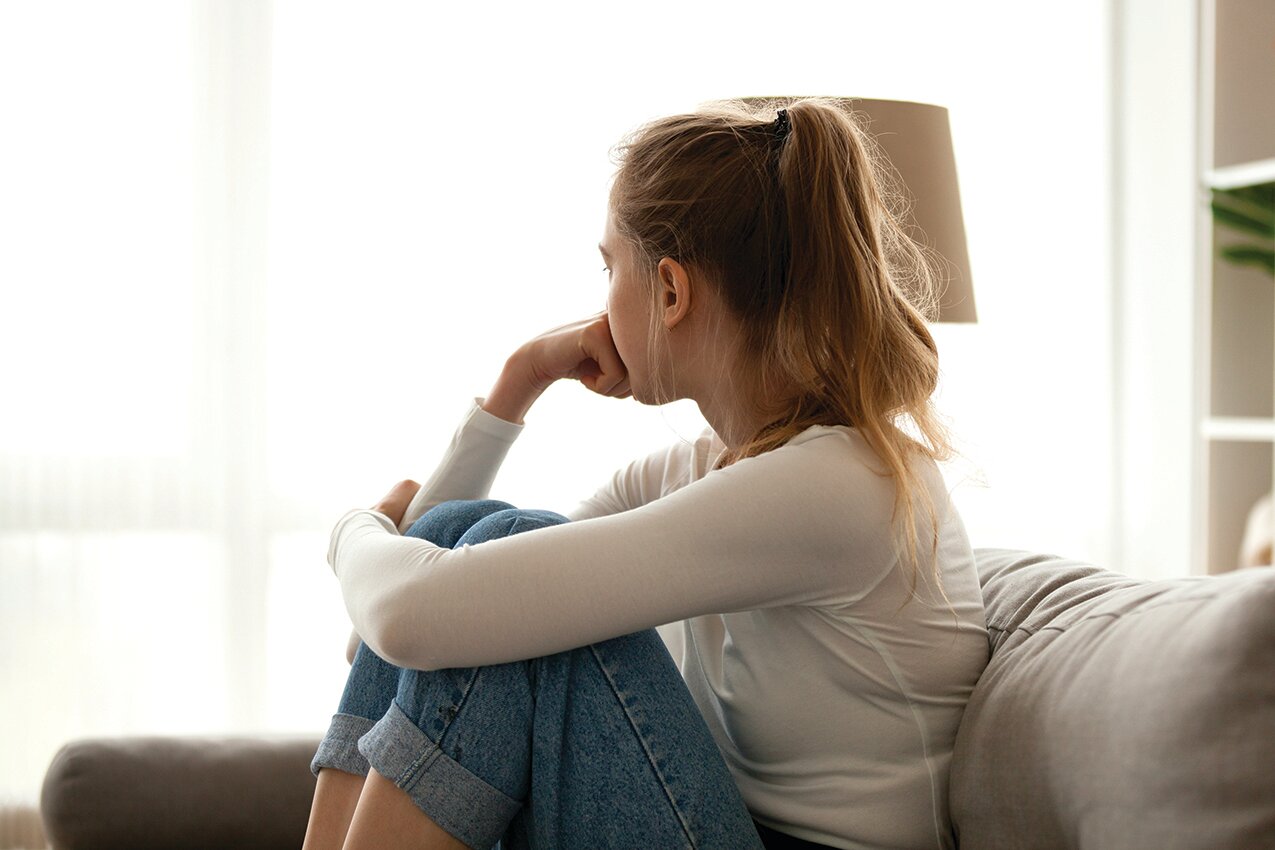Women at this area food pantry lack access to period products. Long Island Jewish Valley Stream staffers are changing that.
It’s a dilemma faced by countless women when they are menstruating. They need access to sanitary pads and tampons to get through their periods, but due to persistent obstacles like the prohibitively high cost of period products, their menstrual needs go uncared for. It’s a phenomenon known as period poverty.
Research estimates that around 11 million women in the U.S. struggle with it.
For some, normal daily life can come to a halt because of it, as they pull themselves away from school or work while they are menstruating.
The issue has long been shadowed by stigma, but people like Lissa Nelson, Long Island Jewish Valley Stream’s employee health manager, and the hospital’s nursing director, Renee Sanchez, are joining a growing chorus of health advocates and lawmakers aiming to normalize women’s menstrual well-being, and taking steps to make certain that teenage girls and women have adequate access to period products in schools, offices and public buildings.
Nelson and Sanchez, for their part, are making inroads by providing those products where the most financially vulnerable women can get them: at a food pantry.
“We were already engaged in volunteering at the Memorial Presbyterian Church food pantry in Roosevelt, trying to meet this issue of food insecurity,” Nelson said, “and it wasn’t lost on us that the majority of people who were coming to get the food to feed these families in need were women.”
In a series of conversations, Nelson and Sanchez soon discovered that women’s needs didn’t end with food. There was a widespread, but largely hidden, need for tampons and pads as well.
When women are burdened with taking care of their children and family, looking after their own bodily functions is often low on their priorities list, Nelson noted.
“We know that women who come to the pantry are caretakers,” she said. “Many of them have children, and take care of everybody in the family. So, if you’re struggling to buy food and you’re struggling to get diapers, you put on the backburner your own needs for feminine hygiene products that come up monthly, or sometimes more than that.”
Women in need often resort to making their own tampons and pads at home, whose long-term health effects are still unknown.
“We’ve heard stories from women at the pantry about them taking the stuffing out of stuffed animals to make pads, and keeping tampons in longer than they should, and these ways of dealing with their menstrual cycle are not necessarily healthy,” Nelson said.
Through the Women’s Empowerment BERG program at LIJVS, Nelson and Sanchez donated close to 500 menstrual products to the Roosevelt pantry on April 22. Donations were collected throughout March and April in a box in the hospital’s cafeteria.
“We wanted to tackle an issue that is kind of swept under the rug or not talked about,” Sanchez said, “and we wanted to de-stigmatize women’s health, especially when it comes to gynecological care. Our donation box is still getting filled.”
Many of the inequities in the realm of women’s health stem from society’s collective discomfort with and ignorance of their menstrual needs, Sanchez added. Most people steer clear of conversations about menstruation, which is something of a collective cultural taboo. Because of period shame, Sanchez said, women often feel embarrassed and guilty about what is an otherwise natural and healthy experience.
“If you have a uterus, you will have periods,” she said. “So we need to help people get access to menstrual products they need. We want to get men as much as women on board, because it’s not just a women’s issue. It’s a life balance issue because men have daughters, and they have wives.”
Many health advocates like Sanchez also point to the sales tax on tampons and menstrual products, classified as a luxury item, as one of the reasons they remain financially out of reach for so many women. Yet the consensus among health professionals is that these items are not a luxury, but rather a necessity for women’s health.
The sales tax on tampons has been abolished in 23 states, including New York, in 2016, and five other states do not have a sales tax. In 2018, New York also mandated free statewide access to menstrual products in public schools.
But despite notable strides, gaining safe and regular access to menstrual products is still a substantial challenge for many women. The National Organization for Women estimates that women spend an average of $20 on menstrual products per cycle. And the rising prices of basic goods and services have only further eroded women’s ability to afford them.
“Donating feminine hygiene products is something we’d like to do annually,” Sanchez said. “It’s part of the mission of our community hospital to step outside these four walls and meet people’s additional needs where they are.”
Have an opinion on this story? Send an email to jlasso@liherald.com.

 80.0°,
Partly Cloudy
80.0°,
Partly Cloudy 




